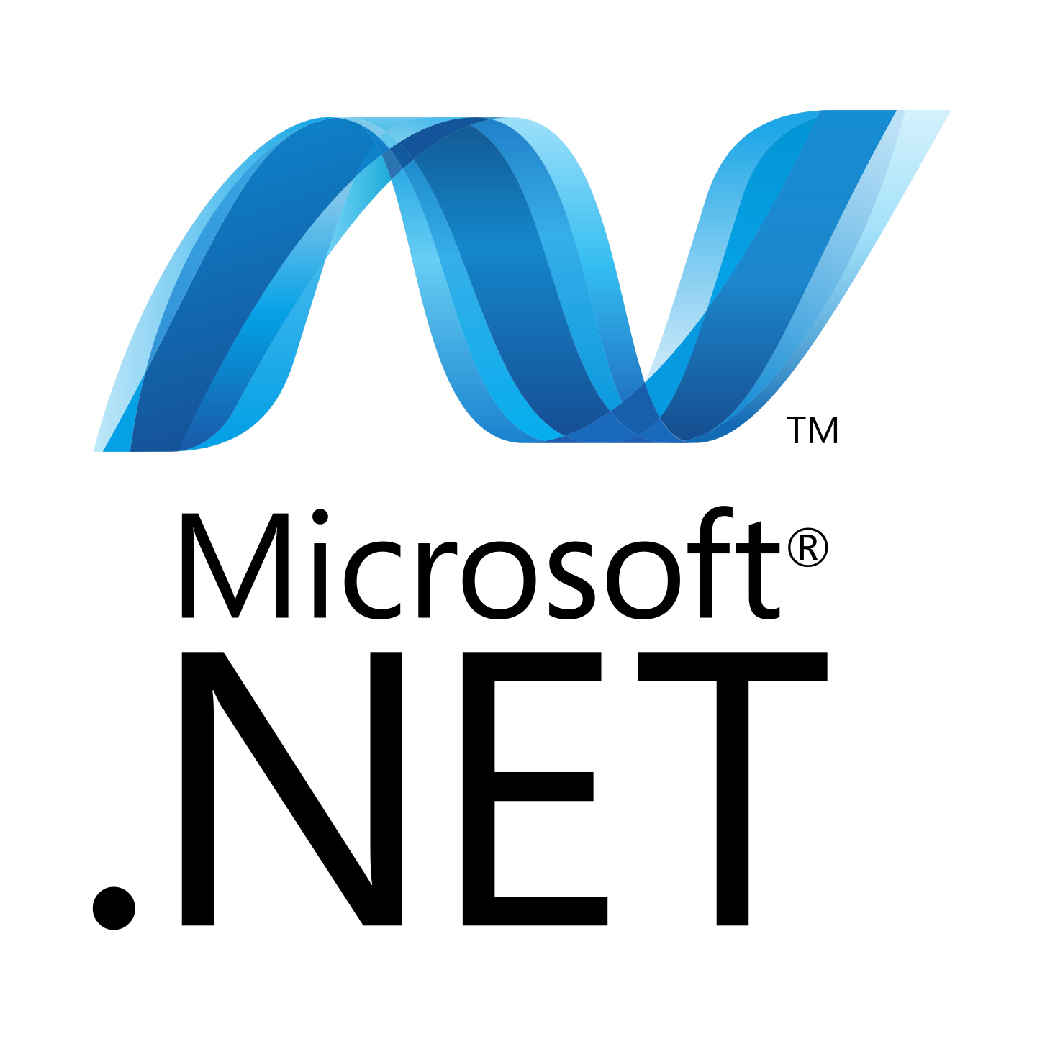Becoming a .NET Developer: Unleashing the Power of Microsoft’s Platform
Embracing the .NET Realm: Unleashing the Power of Microsoft’s Platform as a .NET Developer

Becoming a .NET Developer:
Unleashing Microsoft’s Platform
In today’s tech-driven world, software development has become one of the most sought-after and lucrative career paths. Among the myriad programming languages and frameworks available, Microsoft’s .NET platform is a formidable force. .NET developers are in high demand, and the ecosystem offers many opportunities for those looking to enter the field. This article will explore the steps and critical aspects of becoming a proficient .NET developer.
Understanding the .NET Framework
Before becoming a .NET developer, it is essential to grasp the fundamentals of the .NET framework. .NET is a robust and versatile platform developed by Microsoft, enabling developers to build applications for various platforms, including Windows, web, cloud, and mobile. It comprises multiple components, such as the Common Language Runtime (CLR), the Base Class Library (BCL), and various development tools like Visual Studio.
The first step for aspiring .NET developers is to comprehend the architecture of the platform, its components, and how it operates. Numerous online resources, tutorials, and documentation are available to help you gain this understanding (1).
“With its fundamental components, support for different programming languages, and integration capabilities,.NET provides a powerful platform for developers to bring their ideas to life and provide high-quality software solutions.”
-Simplilearn
Our Executive Team

Common Industries we provide .NET Technologies:
Healthcare & Life Sciences
SaaS & Information Services
Manufacturing
Financial Services & FinTech
Retail & E-Commerce
Insurance
Logistics & Automotive
Travel & Hospitality
Learn from the best,
Mastering C# Language
At the heart of the .NET framework lies the C# (pronounced as C-sharp) programming language. C# is an object-oriented language that is the primary language for developing .NET applications. Learning C# is crucial to becoming a proficient .NET developer.
Begin by grasping the basic syntax, data types, control structures, and object-oriented concepts like classes, inheritance, and polymorphism. As you progress, delve into more advanced topics such as LINQ (Language Integrated Query), asynchronous programming, and delegates. Online courses, tutorials, and practice projects are excellent resources for honing your C# skills.
Exploring the .NET Ecosystem
.NET developers have the option to build applications for various platforms, so it’s essential to understand the different parts of the .NET ecosystem:
ASP.NET
This framework allows developers to build dynamic web applications. Learning ASP.NET is essential for those interested in web development using. NET. Understanding HTML, CSS, and JavaScript will complement your ASP.NET knowledge (2).
“ASP.NET is a web development platform that presents an all-inclusive software infrastructure, programming model, and different services needed to build efficient web applications for mobile devices and PCs.”
-Dot Net Tricks
Xamarin
Xamarin enables the development of cross-platform mobile applications for Android and iOS using C#. If mobile development interests you, consider learning Xamarin and its associated libraries.


Common Industries we provide .NET Technologies:

COST-EFFECTIVE DEVELOPERS
Our Software Developers and Engineers cost
on average $45 to $65 per hour

HIGHEST QUALITY DEDICATED TEAMS
Access to the TOP 1% of Nearshore Software Development resources in Latin America

TIME SENSITIVE DEVELOPMENT
Sonatafy’s Nearshore Talent Acquisition can place qualified Software Engineering teams in as quick as 2 weeks
The great question about
Becoming a .NET Developer:
NET Core/.NET 5+
Microsoft introduced .NET Core as a cross-platform and open-source alternative to the traditional .NET Framework (https://sonatafy.com/net-core-vs-net-framework/). The latest versions are .NET 5 and above, which have unified .NET Core with the .NET Framework. Learning .NET Core/.NET 5+ is vital as it brings modern advancements and cross-platform capabilities.
Blazor
Blazor is an exciting technology that allows developers to build interactive web applications using C# and Razor syntax. It enables full-stack web development with C# and eliminates the need for JavaScript.
Hands-on Projects and Practice
Theory alone is not enough to become a proficient .NET developer. Practical experience is crucial to understanding how to apply the concepts effectively. Start working on small and large projects to apply your knowledge and gain real-world experience.
Consider creating web applications, desktop applications, or mobile apps using the .NET stack. Building projects exposes you to challenges, problem-solving opportunities, and industry best practices.

Interested In Working With Sonatafy?
Why Utilize Microsoft Documentation
and Resources Development:
Microsoft offers comprehensive documentation, tutorials, and learning paths for .NET development. The official Microsoft website and Microsoft Learn platform are invaluable resources to explore and deepen your knowledge.
Stay up-to-date with the latest advancements, announcements, and improvements in the .NET ecosystem. Microsoft continuously releases updates and progress, and staying informed will keep your skills relevant.
Version Control and Collaboration
Proficient .NET developers should be well-versed in version control systems like Git. Understanding how to collaborate with other developers, manage code repositories, and resolve conflicts, especially if you plan to work in a team or contribute to open-source projects.
Join the .NET Community
Community participation provides valuable insights, networking opportunities, and mentorship. Engage with the .NET community through forums, social media groups, and attending local or virtual meetups and conferences. Contributing to open-source projects can also enhance your skills and reputation within the community.
Continuous Learning and Growth
The technology landscape is constantly evolving, and as a .NET developer, you must embrace continuous learning. Keep an eye on emerging trends, explore new tools and frameworks, and expand your expertise beyond the core .NET stack.
Becoming a .NET developer requires dedication, continuous learning, and a passion for building software applications. By understanding the .NET framework, mastering C#, exploring the ecosystem, and working on practical projects, you can unleash the power of Microsoft’s platform and embark on a rewarding career as a .NET developer. Embrace the challenges, stay curious, and be open to new opportunities as the world of .NET development continues to evolve and expand.
%
TOP NEARSHORE TALENT
%
ATTRITION RATE
%
ENGLISH PROFICIENCY
RESOURCES DEPLOYED
How long does it take
to become a .NET developer?
The time it takes to become a proficient .NET developer can vary depending on your existing programming knowledge, the time you can dedicate to learning, and the depth of expertise you want to achieve. Becoming a primary .NET developer with a solid understanding of C# and the .NET ecosystem may take a few months to a year of consistent effort. However, becoming an experienced and skilled .NET developer capable of working on complex projects may take several years of continuous learning and practical experience.
Skills needed to become a .NET developer:
To excel as a .NET developer, you need a combination of technical and soft skills:
- Fundamentals of Coding:Strong coding fundamentals are essential, including understanding data types, variables, control structures, and object-oriented programming concepts.
- Client-side Technology:Familiarity with client-side technologies like HTML, CSS, and JavaScript is vital, especially for web development with ASP.NET.
- Database Management:Knowledge of working with databases and SQL is crucial, as most applications interact with databases to store and retrieve data.
- Communication:Effective communication skills are necessary to collaborate with team members, understand project requirements, and discuss technical concepts with stakeholders.
- Problem-solving:You will encounter various challenges and bugs as a developer. The ability to troubleshoot and find practical solutions is vital.
- Time Management:Meeting project deadlines and managing your time efficiently is crucial for success in a professional setting.
- Teamwork and Collaboration:Most development projects involve working in a team, so the ability to collaborate, share knowledge, and work cohesively is essential.
- Customer Service:Understanding end-user needs and providing excellent customer service ensures the developed applications meet user expectations.
- Financial Management:For freelance or independent developers, basic financial management skills are valuable when dealing with clients and budgeting.
- The Average Salary of .NET Developers:
The salary of .NET developers can vary based on experience, location, company size, and job responsibilities. Generally, .NET developers earn a competitive salary due to the demand for their skills. As of my knowledge cutoff in September 2021, the average salary of a .NET developer in the United States ranged from $70,000 to $110,000 per year. However, these figures may have changed since then, and salaries can differ significantly in different regions and countries.
Is .NET a Good Career?
Yes, pursuing a career as a .NET developer can be a rewarding choice. The .NET platform has a substantial user base and is widely used in enterprise-level applications. Its versatility and cross-platform capabilities open opportunities in various industries, including finance, healthcare, e-commerce, and more. The demand for skilled .NET developers will likely remain strong as technology advances (3).
“And since the labor market is still in the active development stage, programmers with a profound grasp of C# and .NET technologies are in high demand.”
– Tech Slang
What Is .NET?
.NET is a comprehensive platform developed by Microsoft that allows developers to build various applications. It consists of the Common Language Runtime (CLR), which manages code execution, and the Base Class Library (BCL), which provides pre-built functions for everyday tasks. Developers can use languages like C#, Visual Basic, and F# to build applications for Windows, web, cloud, and mobile platforms.
How To Become a .NET Developer:
To become a .NET developer, follow these steps:
- Explore .NET Developer Education:Start by learning the fundamentals of programming, data structures, and algorithms. Familiarize yourself with C# language and object-oriented programming.
- Develop .NET Developer Skills:Practice coding in C# and build small projects to solidify your knowledge. Learn about ASP.NET, Xamarin, or Blazor based on your interests.
- Complete Relevant Training/Internship:Enroll in online courses or attend workshops on .NET development. Internships or entry-level positions can provide valuable real-world experience.
- Get .NET Developer Certifications:Earning certifications like Microsoft Certified Professional Developer (MCPD) or Microsoft Certified Solutions Developer (MCSD) can enhance your credibility.
- Research .NET Developer Duties:Understand the responsibilities and tasks that .NET developers typically handle in various job roles.
- Prepare Your Resume:Showcase your skills, education, and projects in a well-structured resume tailored for .NET development roles.
- Get .NET Developer Experience:Work on projects, contribute to open-source projects, or build your portfolio to gain practical experience.
- Apply for a .NET Developer Job:Start applying for .NET developer positions as a full-time employees or freelancer/contractor.
.NET Development Company
Awards & Recognitions
Helping take our clients’ software development businesses to the next level has been quite an experience, and we are not slowing down any time soon. Providing a memorable experience and far surpassing our customers’ software development and solutions goals is one of the most rewarding experiences of our .NET development company to date.
We’re ready to start helping your company grow with our industry-leading custom software development solution, are you?

Earning Trust & Loyalty for our Software Development Services
Our executive team proudly provides complete software development solutions in the healthcare, SaaS, Manufacturing, and FinTech fields from deployment to completion.
Our client-centric software development solutions have made us the healthcare app development provider of choice for clients such as Akido Labs, Datacubed Health, Sema Technologies, and Semantic AI, among others. With thousands of software development engineers deployed to date, clients love our personalized high-touch approach.
With high-quality delivery web development services and strong customer support and management, we give you the ability to focus on business decisions rather than software development issues.
Sonatafy Technology services can dramatically
improve the .NET Technologies.
Our Software Development Clients Have Spoken.

“We increased our productivity and quality by extending our team with Sonatafy resources. They are part of our ‘family’. Their passion, dedication, experience, and wisdom has been nothing short of impressive.”

“We have been using Sonatafy for software team augmentation. Their vetting process is extremely through and has saved us a huge amount of time. All of the candidates presented have been outstanding and have fit into our team perfectly.”

“The Sonatafy team consists of members who are dedicated, personable, and attentive. They will search tirelessly to match the right talent to meet your skills and budgetary requirements. Regardless of your situation, you cannot go wrong with Sonatafy.”

“The Sonatafy team has continually impressed us with the quality of their engineers — we have found excellent engineering leaders in their contractors who have helped tremendously. They really are an integral part of our team, and we’re very thankful for Sonatafy’s professional leadership in this space. I heartily recommend them to augment anyone’s teams or projects.”

“At IMAIGE Analytics, we are driven by purpose and outcomes. Sonatafy has been the exact type of partner we need to help us deliver on both. They’ve found solutions specific to our purpose and needs, their resources have contributed like long time team members from day one and they seem dedicated to progressively better outcomes from the start. Thanks to the team and to Steve for taking the time to make our business better!”

“The entire team at Sonatafy greatly surpassed our expectations. We require very specific skill sets and the team did an incredible job of screening and selecting top – notch candidates. Sonatafy’s attention to detail, professionalism, open communication, and collaboration with us ensured that we found highly skilled talent that fit seamlessly into our company’s culture. I can’t recommend them strongly enough.”

“Sonatafy makes it easy to find great and professional talent, with their help we have been able to solidify our team. Their process and communication is a refresher and a weight off our shoulders.”

I’ve used Sonatafy Technologies for the last 5 + years at several of my companies both small and large, in a staff augmentation capacity. I have been consistently impressed with the high – quality of technical skills as well as the team member’s high level of engagement and dedication to my projects. I’ve always considered my dedicated Sonatafy resources as members of my team , and their contributions and performance has been excellent. The combination of high performance and afford ability has been an outstanding benefit , and I would highly recommend using Sonatafy Technologies as your near shore technology partner.
The rich ecosystem of
.NET provides developers
Continuous Integration and Continuous Deployment (CI/CD) pipelines are essential tools for modern software development. Familiarity with CI/CD pipelines is advantageous for .NET developers, as it streamlines the development process, automates testing, and ensures smooth deployment of applications. Learn about popular CI/CD tools like Jenkins, Azure DevOps, or GitLab CI, and understand how to integrate them into your .NET development workflow for improved efficiency and reliability.
What do I need to be a .NET developer?
To become a .NET developer, you need a combination of technical skills, knowledge, and practical experience. Here are the essential requirements:
- Programming Fundamentals: Strong knowledge of programming fundamentals, including variables, data types, control structures, and object-oriented programming concepts.
- Proficiency in C#: Mastery of the C# programming language, as it is the primary language used for .NET development.
- Understanding of .NET Framework and Ecosystem: Familiarity with the components of the .NET framework, including the Common Language Runtime (CLR), Base Class Library (BCL), and various development tools.
- Web Development (optional):If you are interested in web development with .NET, knowledge of ASP.NET, HTML, CSS, and JavaScript is essential.
- Database Management: Understanding databases, SQL, and how to interact with databases from .NET applications.
- Problem-solving Skills: Ability to troubleshoot issues, find practical solutions, and implement best practices.
- Teamwork and Communication: Capability to work in a team, communicate technical concepts effectively, and collaborate with stakeholders.
What degree does a .NET developer need?
There is no strict educational requirement to become a .NET developer. While some employers may prefer candidates with a degree in computer science, software engineering, or a related field, it is possible to enter the area without a formal degree. Many developers acquire the necessary skills through self-study, coding boot camps, online courses, or practical experience.
Employers often prioritize candidates’ practical skills, portfolios, and relevant certifications over their formal education.
Are .NET developers in demand?
Yes, .NET developers are in demand. The .NET platform is widely used in enterprise-level applications, making skilled .NET developers highly sought after in various industries. The need for .NET developers will likely continue due to the large existing codebases in .NET and the platform’s versatility in building applications for different platforms.
Is .NET development easy or difficult?
The difficulty of .NET development can vary depending on your prior programming experience and the complexity of your projects. If you have a strong foundation in programming and are familiar with object-oriented principles, C# may be relatively easy to learn.
However, like any programming language and framework, becoming proficient in .NET requires consistent practice, dedication, and continuous learning. The breadth of the .NET ecosystem, which includes various technologies like ASP.NET and Xamarin, can present a learning curve (4).
“They interact with computers daily, and work in teams at software development companies or in the IT department of a broad range of technology–driven organisations. They may also work freelance servicing a list of clients.”
-Seek
While .NET development may not be the easiest option for absolute beginners, with the right approach and determination, it is certainly an achievable and rewarding career path for those interested in software development. Dont listen to the industry, .NET is certainly not dead.
.NET Developer Course:
A .NET developer course is an educational program or training that teaches individuals the skills and knowledge required to become a proficient .NET developer. These courses cover various aspects of the .NET framework, including programming in C#, ASP.NET, database management, and other relevant technologies.
A comprehensive .NET developer course typically includes lectures, hands-on exercises, real-world projects, and assessments to reinforce learning. It may also cover topics like version control, CI/CD pipelines, and software development best practices. Online platforms, universities, coding boot camps, and training institutes offer .NET developer courses.
.NET Developer Salary in India:
The salary of a .NET developer in India can vary based on factors such as experience, location, company size, and specific roles and responsibilities. As of my last knowledge update in September 2021, the average salary of a .NET developer in India ranged from ₹300,000 to ₹800,000 per year. Junior or entry-level developers might earn a lower wage, while experienced developers with several years of experience and specialized skills can command higher pay packages.
It’s important to note that these figures may have changed since my last update, and the actual salary may vary depending on the current job market conditions.
.NET Developer Roadmap:
A .NET developer roadmap is a visual guide that outlines the learning path and skills required to become a successful .NET developer. It typically covers the following stages:
- Basic Programming Fundamentals: Learn programming basics, algorithms, and data structures.
- C# Language Mastery: Develop a strong foundation in C# programming.
- .NET Framework and Core Concepts: Understand the architecture and key components of the .NET platform.
- Web Development (Optional): If interested in web development, explore ASP.NET, HTML, CSS, and JavaScript.
- Database Management: Learn how to interact with databases using. NET.
- Specialization: Choose a specific area within .NET, such as mobile app development with Xamarin or full-stack web development with Blazor.
- Real-World Projects: Work on practical projects to apply your knowledge and gain hands-on experience.
- Continuous Learning: Stay updated with the latest advancements in .NET and related technologies.
.NET Developer Jobs:
.NET developers can find employment opportunities in various industries and organizations, including software development companies, IT consulting firms, financial institutions, healthcare organizations, and government agencies. They may work as part of a development team or as freelance developers.
Standard job titles for .NET developers include .NET Developer, Software Developer, Web Developer (for web-focused .NET developers), and Mobile App Developer (for Xamarin developers).
.NET Developer Salary:
As mentioned earlier, the salary of a .NET developer can vary significantly based on factors like experience, location, company size, and job responsibilities. In countries with a high demand for .NET developers, experienced professionals with advanced skills may command a higher salary.
.NET Developer Job Description:
A .NET developer’s job description typically includes the following responsibilities:
- Writing, testing, and maintaining code for .NET applications.
- Participating in the software development lifecycle, including requirement analysis, design, implementation, testing, and deployment.
- Collaborating with cross-functional teams to develop and implement software solutions.
- Troubleshooting and debugging applications to resolve issues.
- Optimizing application performance and ensuring scalability.
- Keeping up with the latest industry trends, technologies, and best practices in .NET development.
- Following coding standards and participating in code reviews.
ASP.NET Developer:
ASP.NET developers specialize in web application development using the ASP.NET framework. They build dynamic and interactive web applications with C# and other web technologies. ASP.NET developers are responsible for designing and implementing web interfaces, handling server-side logic, managing databases, and ensuring the security and performance of web applications.
.NET Developer Skills Resume:
When creating a resume for a .NET developer position, highlight the following skills:
- Proficiency in C# and the .NET framework.
- Web development skills with ASP.NET, HTML, CSS, and JavaScript (if applicable).
- Experience with databases and SQL.
- Familiarity with version control systems like Git.
- Knowledge of software development methodologies and best practices.
- Problem-solving and debugging skills.
- Communication and teamwork abilities.
- Any relevant certifications or specialized skills (e.g., Xamarin, Blazor).
Include details about your education, work experience, projects, and any contributions to open-source projects. Tailor your resume to match the specific job requirements and emphasize how your skills and experience align with the employer’s needs.
References:
- With its fundamental components, support for different programming languages, and integration capabilities,.NET provides a powerful platform for developers to bring their ideas to life and provide high-quality software solutions. – Simplilearn Quote
https://www.simplilearn.com/how-to-become-a-dot-net-developer-article - ASP.NET is a web development platform that presents an all-inclusive software infrastructure, programming model, and different services needed to build efficient web applications for mobile devices and PCs. – Dot Net Tricks Quote
https://www.dotnettricks.com/learn/aspnet/how-can-you-become-an-aspnet-developer - And since the labor market is still in the active development stage, programmers with a profound grasp of C# and .NET technologies are in high demand. – Tech Slang Quote
https://www.techslang.com/how-to-become-a-net-developer/ - They interact with computers daily, and work in teams at software development companies or in the IT department of a broad range of technology–driven organizations. They may also work freelance servicing a list of clients. – Seek Quote
https://www.seek.com.au/career-advice/role/dot-net-software-developer









